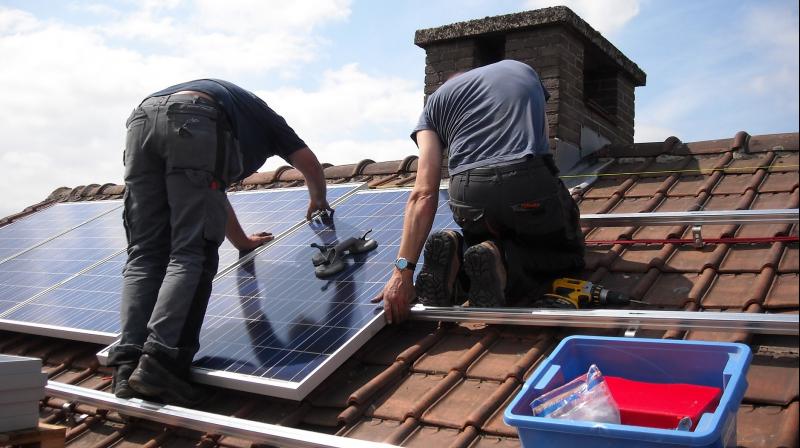Adopting solar power can help you earn money
Consumers can feed surplus power into the state's power grid and receive a credit on the bill.

Solar based power generations is a simple concept which took it’s time, but is now firmly entrenched as an economic model to generate sustainable power. And as solar panels have gotten cheaper over the years, more and more Indians have begun looking up to the sun for their daily power needs. The government too, has thrown its weight behind the adoption of solar technology to meet its ambitious target of generating 40 GW of power from rooftop projects by 2022.
Net Metering concept is what has made this possible, viable and sustainable at both institutional and individual levels. Simply put, net metering is a process in which the electricity board keeps track of the energy consumed as well as generated by a solar-powered house. It allows consumers to feed surplus solar power into the state’s power grid when they don’t need it and receive a credit on their electricity bill.
Maxson Lewis, Managing Director for Magenta Power Pvt. Ltd, gave us some insights of the possibilities of tapping solar energy in our country, and how the common man can benefit and earn from using solar power.
Lewis said that if you have installed Solar on your rooftop and implemented the net metering policy, then you get credited for the electricity you deliver back to the grid at the same retail price that you pay for the electricity you take from the grid.
This allows for following direct and indirect benefits
• Since net metering solar systems are installed on the rooftops of residential houses and commercial buildings, they do not require large tracts of land unlike large solar parks.
• This concept uses the power grid as a giant battery, which eliminates expensive battery backups to store and balance out the power consumption through the day.
• With net metering systems, one only pays for the deficit power consumed i.e. the difference between the power consumed from the grid and the solar power generated. This drastically reduces your electricity bill while in some states gives you an opportunity to earn an income.
• Components like solar panels and inverters need low to no maintenance. Since these installations do not require batteries, expense for their maintenance is next to nil.
• Electricity dispatched on the grid from the power plants to your home incurs significant transmission and distribution losses, thereby wasting electricity. These losses are almost nil in net metering systems as energy is generated and consumed at the same location. This indirectly reduces energy congestion and stress on overall grid infrastructure and allows improved grid voltage to consumers.
• Deploying net metering systems also incentivizes the adoption of localized power generation through renewable technologies. This helps cut down the country’s per capita energy footprint.
To enable this system of net-metering, the electricity boards replaces the existing unidirectional energy meter (which can only measure and record consumption) with a bidirectional meter that records the import and export energy separately and also calculates the differential and hence called the net meter.
The Ministry of New and Renewable Energy (MNRE) is the nodal Ministry of the Government of India for all matters relating to new and renewable energy. The broad aim of the Ministry was to develop and deploy new and renewable energy for supplementing the energy requirements of the country. MNRE used to provide direct financial subsidies for solar panel systems subject to certain conditions. However, over the last couple of months, the authority and the subsidy purse was devolved to state bodies. States like Maharashtra which offered subsidies under MEDA (Maharashtra Energy Development Agency, were stopped since 30th March 2018. However, given the reduction in component cost, the non-availability of subsidy is no longer a dampener to the growth of solar power in India.
The low entry barrier for installers to enter this market was a boon till recently and allowed for tremendous growth in solar installations and has become a large employment generation engine. However, the same lack of entry barriers is now turning out to be a bane to the growth of the industry. Industry participants with short term and get rich quick views are pushing rates to artificial and unsustainable levels often at the cost of quality. Bad installations, unsafe wiring, unscrupulous drilling on rooftops, lack of design standards is often the norm rather than the exception. A bad installation is not only economically bad but a high risk given the heights at which the panel structures need to withstand wind loads. Hence, it is incumbent on the customer to look and ask for a 25 year view of their solar installations.
Having said that, the eternal sun continues to give us a chance to tap into this vast power source. And Magenta Power is proud to be part of this initiative to help you go green.

